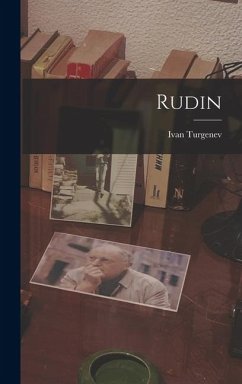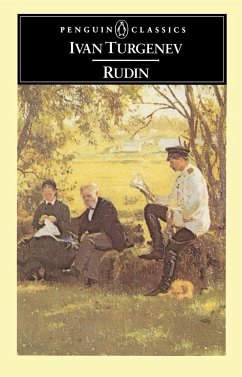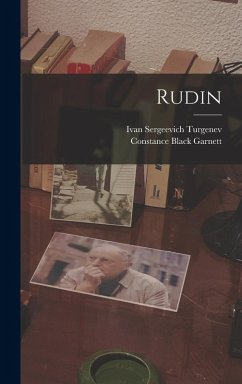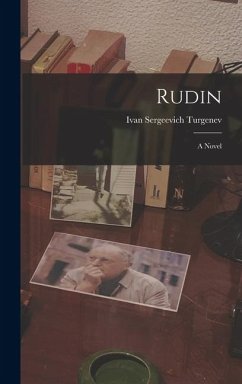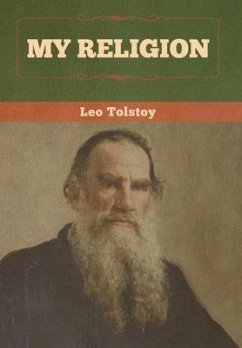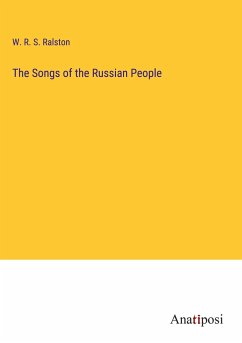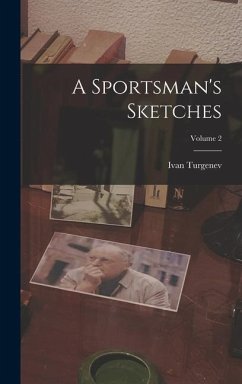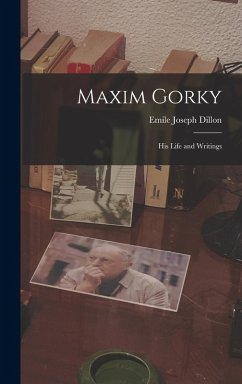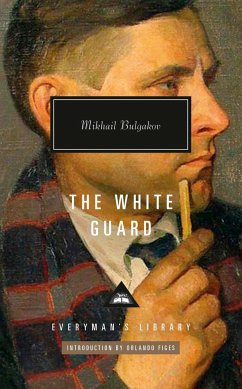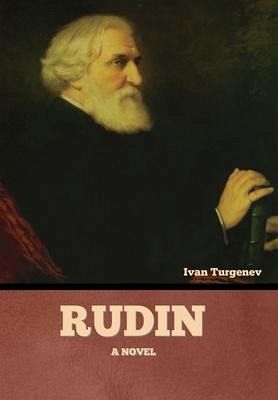
Rudin
Versandkostenfrei!
Versandfertig in über 4 Wochen
25,99 €
inkl. MwSt.
Weitere Ausgaben:

PAYBACK Punkte
13 °P sammeln!
Rudin is the first novel by Ivan Turgenev, a famous Russian writer best known for his short stories and the novel Fathers and Sons. Turgenev started to work on it in 1855, and it was first published in the literary magazine "Sovremennik" in 1856; several changes were made by Turgenev in subsequent editions. Rudin was the first of Turgenev's novels, but already in this work the topic of the superfluous man and his inability to act (which became a major theme of Turgenev's literary work) was explored. Similarly to other Turgenev's novels, the main conflict in Rudin was centred on a love story of...
Rudin is the first novel by Ivan Turgenev, a famous Russian writer best known for his short stories and the novel Fathers and Sons. Turgenev started to work on it in 1855, and it was first published in the literary magazine "Sovremennik" in 1856; several changes were made by Turgenev in subsequent editions. Rudin was the first of Turgenev's novels, but already in this work the topic of the superfluous man and his inability to act (which became a major theme of Turgenev's literary work) was explored. Similarly to other Turgenev's novels, the main conflict in Rudin was centred on a love story of the main character and a young, but intellectual and self-conscious woman who is contrasted with the main hero (this type of female character became known in literary criticism as ¿¿¿¿¿¿¿¿¿¿¿¿ ¿¿¿¿¿¿¿, "Turgenev girl"). Rudin was written by Turgenev in the immediate aftermath of the Crimean War, when it became obvious to many educated Russians that reform was needed. The main debate of Turgenev's own generation was that of Slavophiles versus Westernizers. Rudin depicts a typical man of this generation (known as 'the men of forties'), intellectual but ineffective. This interpretation of the superfluous man as someone who possesses great intellectual ability and potential, but is unable to realize them stems from Turgenev's own view of human nature, expressed in his 1860 speech 'Hamlet and Don Quixote', where he contrasts egotistical Hamlet, too deep in reflection to act, and enthusiastic and un-thinking, but active Don Quixote. The main character of the novel, Rudin, is easily identified with Hamlet. Many critics suggest that the image of Rudin was at least partly autobiographical. Turgenev himself maintained the character was a "fairly faithful" portrait of the anarchist Mikhail Bakunin, whom the author knew well. Alexander Herzen, who knew both men, said in his memoirs that the vacillating Rudin had more in common with the liberal Turgenev than the insurrectionist Bakunin. Rudin is often compared to Pushkin's Eugene Onegin and Lermontov's Pechorin. The latter two are considered to be representations of their generations ('men of twenties' and 'men of thirties' respectively) as Rudin is considered to be a representation of his generation; the three literary works featuring these characters share many similarities in structure and all three characters are routinely referred to as 'superfluous men' (whether the term is applicable to all three has been a subject of scholarly debate). For a long time, Turgenev was unsure of the genre of Rudin, publishing it with a subtitle of 'novella'. In 1860, it was published together with two other novels, but in the three editions of Turgenev's Works that followed it was grouped with short stories. In the final, 1880, edition it was again placed at the head of the novels. The theme of the superfluous man in love was further explored in Turgenev's subsequent novels, culminating in Fathers and Sons. (wikipedia.org)





